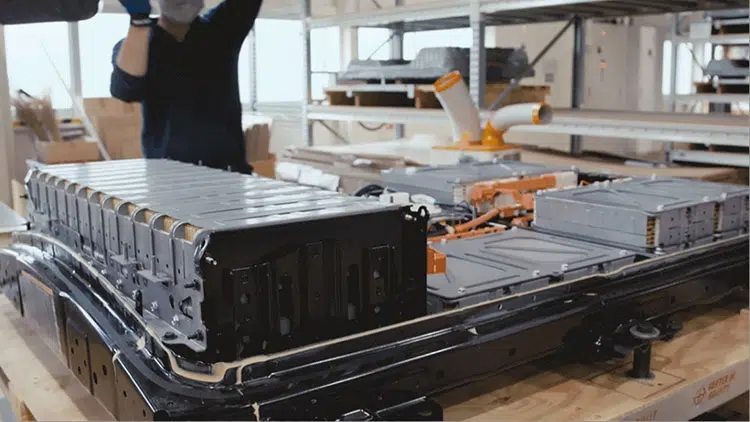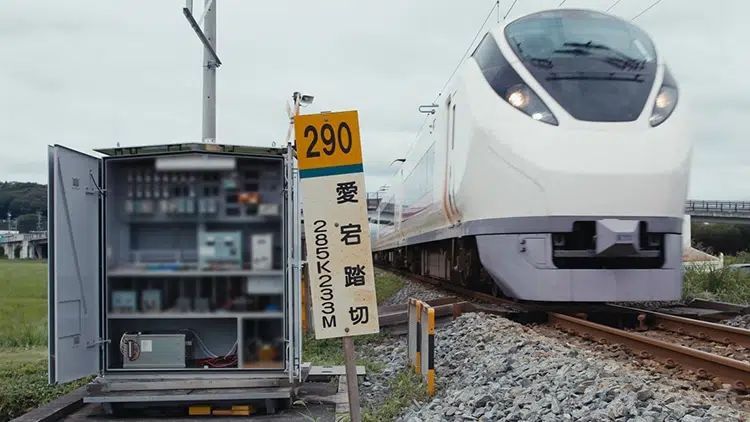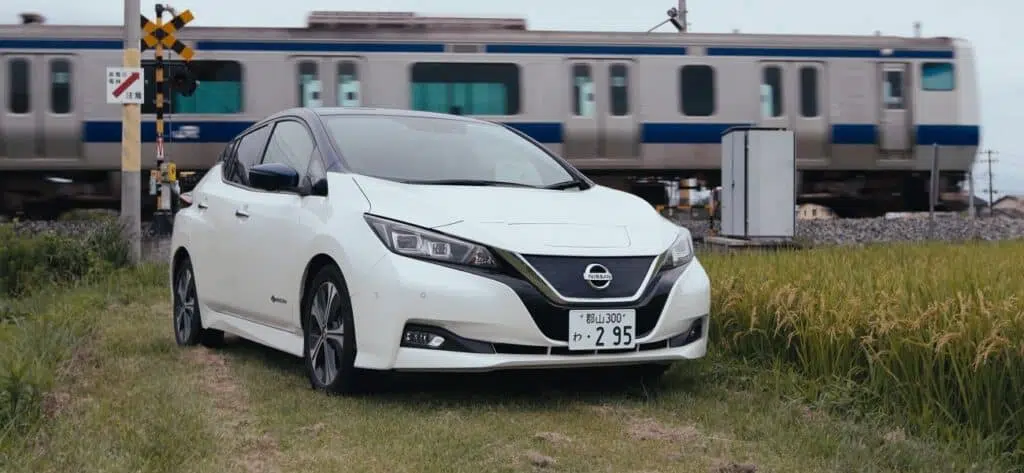With the rising number of electric vehicles on the road, you must wonder what would happen to the old decommissioned batteries taken off these vehicles. Well, Nissan has thought of an ingenious idea i.e. repurpose them for use in railroad crossings.

According to Nissan, lithium-ion batteries retain 60 – 80% of its storage capacity at the end of its life span in an EV. By repurposing them for use in railroad crossings eliminates the need to produce a brand new battery from scratch for the railway operators, hence reducing the CO2 emissions.
Currently, most railway crossings in Japan use lead-acid batteries as backup emergency power supply. According to Kaito Tochihara, assistant chief research of East Japan Railway R&D center, switching to lithium ion batteries for this purpose brings many advantages when it comes to battery maintenance.

“With lead-acid batteries, we have to periodically visit railroad crossings to check the state of charge and any deterioration. However, with repurposed lithium-ion batteries, there is a control system attached, similar to an EV, so we can remotely check the battery’s status. This should lead to improved maintenance standards. This system also enables preventative maintenance by informing us of the battery’s status before its voltage becomes too low”, he said. Kaito also claims that lithium-ion batteries have longer life-span and require only 1/3 of charging time when compared to the standard acid-lead batteries.

According to Takuya Kinoshita of Technical Solutions Department of 4R Energy Corporation, safety is the top-most concern and various considerations had to be taken as part of the repurposing strategy. This includes modifications to the control infrastructure of the battery so that it is able to withstand electrical surges caused by lightning. Apart from that however, Takuya is confident that that Nissan LEAF’s battery satisfies the high safety requirements for use in railway operations that are exposed to natural elements.

Being one of the early starters of mass-produced electric vehicles in the recent automotive history, Nissan has a clear head start where it is already working to solve some of the possible sustainability challenges that lie ahead, while many other manufacturers are only beginning to catch up. Nevertheless, it will be interesting to see what other EV manufacturers envision with the old batteries in their vehicles.


